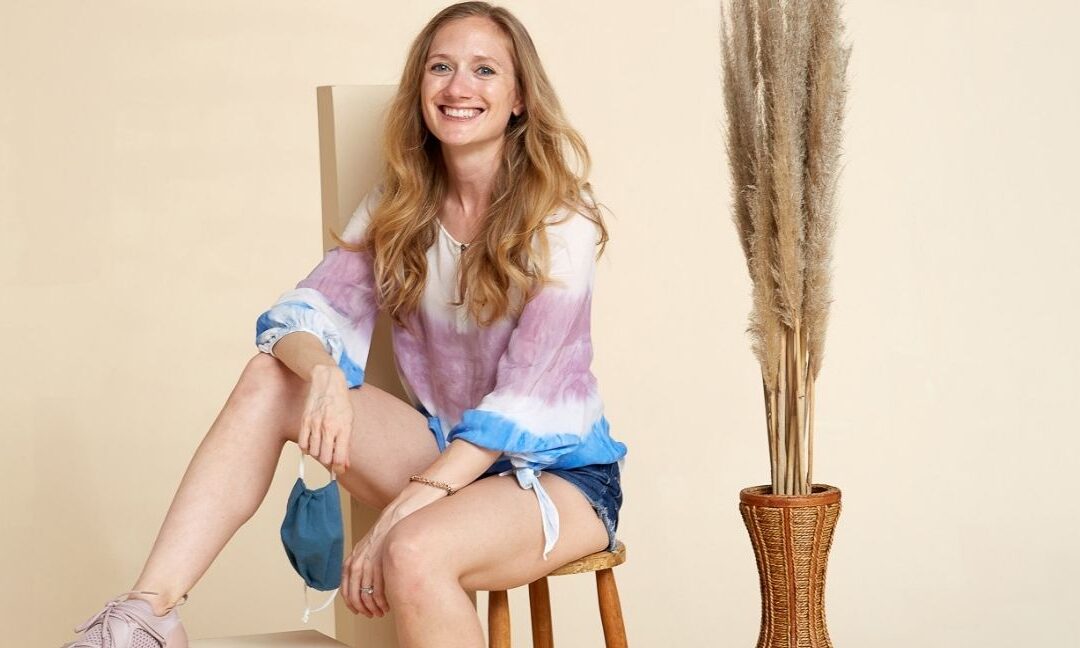We got to chat with Ashley Klein founder of sustainable clothing brand Akala about what inspired her to create the company and her favorite item in the shop.
When did eco-friendly and sustainable fashion become an interest of yours?
My awareness of how the fashion industry as a whole so greatly impacts the climate has grown over the years. Sustainability was not a subject that was taught during my education a decade ago, but it became clear to me how much over-production and waste was occurring throughout the system. Material selections are also largely driven around cost and not environmental impact, with circularity not even in mind. After moving to Seattle a few years ago, I attended the Sustainable Fashion Forum annual event in Portland, and this is what really fueled me to embark on creating a brand that would go about creating clothes in a better way.
It is a big move to start a clothing company. What motivated you to create Akala?
I’ve always had a dream of starting a business since I was in college. As both a consumer and employee within fashion, I’ve picked up on valuable insights while also noticing opportunities for improvement within design and product offerings. At the core, the ethos of Akala is to make sustainable clothing attainable and inclusive. The designs are made for those who value style over trends, and for those who want to shop sustainably but often can’t find it in their size. This used to be me – I’m now pregnant, but previously was a non-hourglass XXS, which a lot of sustainable brands do not design for – at least at a non-luxury price point. I’m often questioned on why, as a new brand, that we are diving into so many sizes upfront and selecting eco-friendly options for every single material. It’s an easy answer, really: if I didn’t, then what’s the point of just making more clothing? The clothing in our closets can have meaning and value, and everyone deserves to have the option to purchase sustainable pieces in their size.
People often try to dress sustainably but it can be difficult. Tell us a bit about Akala’s mission to be inclusive through sizing and the pricing?
I went a bit into this in the above, but to expand – for the industry to make a positive impact on the planet and its people, sustainable fashion has to be made attainable. This goes with both sizing and with price; however, there are limitations with it (at least at our stage as a brand). Starting in our Spring/Summer release, we will offer XXS-4XL, and we currently offer XXS-2XL. My hope is to offer additional sizing as the brand grows, and providing extensions on our evergreen styles.
To provide the quality of clothes that are sewn here in the USA, I made the decision to opt out of wholesale. There would just be no way that the items would be accessible for customers otherwise, and worker compensation is a non-negotiable subject for us. The last two letters of Akala stand for L.A., which is where we manufacture (the first two letters of the brand name are my initials). Akala endorses SB62 for the Garment Worker Protection Act, and so does our manufacturer. Those that create the garments we wear are skilled and should be fairly paid for all they contribute. The shift of retail into e-commerce also helps us easily pivot to a direct-to-consumer model, although we also hope to explore pop-up markets and opportunities to introduce the brand to more consumers.
Do you have a favorite item in the shop?
My pre-pregnancy favorite was the Jumpsuit. I’m now inspired to make a maternity friendly version, even! However, my favorite now is the Sweater Dress – I’m living in it, and it’s been able to go with me throughout all three trimesters. Not only is it cozy, but the pockets are a game-changer. What is a dress without pockets?
Tell us about Akala’s partnership with 1% for the Planet. How did that come to be?
This ties back to my mission behind starting the brand. Not only do I hope to positively impact individuals’ closets, but also be able to give back to organizations helping to make a difference in the environment and communities affected by climate change. I reached out to the organization in late 2020, and we have now signed on as a brand partner as of 2021. 1% of all sales will be donated, and we are grateful to contribute to these efforts.
What advice do you have for other women who are interested in starting a business?
Believe in yourself – if that’s anything 2020 taught me, truly. It sounds so cheesy, but it’s more relevant than you would expect. Women are strong, capable and have so much talent. Whatever your dream is, be intentional around it – make a plan, do the research, save the money up, and don’t be afraid to start. Know what your mission is, and keep that as your guiding motivation. Seek out others who will not only support you, but who may also be embarking on their own similar journey. It will be challenging, and I would be lying if I said at many points in the last year that I didn’t think of giving up. I may have, were it not for the “why” behind the brand, and without a close team of cheerleaders by my side. I’ve learned a few lessons and am taking those into how we’re going about our next season, which I think is a part of the process that has its silver lining. Start small, learn from missteps, be patient and grow one building block at a time.

